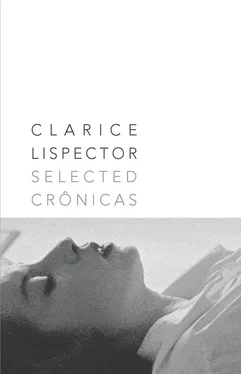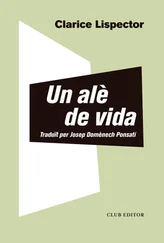At last, the rose was within reach. I paused for a second, perilously, because close up, it looked even lovelier. Reaching out to break the stem, I scratched my hand on the thorns and licked the blood from my fingers.
Then suddenly — I held that entire rose in my hand. I crept back to the gate as quietly as possible and I slipped through the gate which I had left ajar, clutching my prize. And then the rose and I, both of us deathly pale, took to our heels and ran away from the villa as fast as my legs could carry us.
What did I do with my rose? Now that it was mine, this is what I did:
I took it home and put it in a glass of water where it triumphed in all its beauty, the petals thick and velvety in various shades of pink. The colour deepened in the middle until it turned almost crimson.
It was such a wonderful feeling.
That rose gave me so much pleasure that I simply began stealing more and more roses. The ritual never varied: the other little girl kept a lookout while I went in, snapped the roses from their stems and made my escape. With my heart beating fast and forever with that sense of triumph no one could take from me.
I also stole cherries. There was a Presbyterian church near my home. The grounds were enclosed by a green hedge, which was so tall and dense that it was impossible to see the church apart from one tiny corner of the church steeple. The hedge consisted of Surinam cherry bushes and the cherries of this species are concealed amongst the branches. No cherries could be seen from the road. So, after looking carefully, first right then left, to make sure no one was coming, I pushed my hand through the railings, and fumbled inside the hedge until I could feel the moist cherries. In my haste, I often squashed the overripe ones, staining my fingers with their blood-red juice. I picked a handful which I ate on the spot, although some were too green and had to be thrown away.
No one ever caught me. And to this day I feel no remorse. Anyone who steals roses and cherries deserves a hundred years’ pardon. Besides, cherries would prefer to be eaten once they ripen rather than be allowed to rot on the branch, their virginity intact.
Having been through the experience of having a skin-graft, I realize that any idea of a skin-bank is impracticable because a donor’s skin will not adhere for very long to the skin of another person. It is essential that the skin should be removed from another part of the patient’s body and then be grafted on immediately wherever needed. In other words, skin-grafting means donating one’s own skin to oneself.
This led me to consider other instances where people have to donate things to themselves. And this might bring solitude, riches, conflict. I began thinking about kindness which we would naturally like to receive from others. — Yet sometimes only the kindness we extend to ourselves exonerates us from a sense of guilt. Just as it is useless to win the acceptance of others so long as we are unwilling to accept ourselves for what we are. And as for our frailty, this is the strongest part of our nature, and brings us reassurance and satisfaction. And there are certain sorrows which only our own sorrow, if intensified, can, paradoxically, assuage.
Fortunately, when it comes to love, riches come with mutual donation. Which does not imply there is no struggle: we have to grant ourselves the right to receive love. But the struggle is worthwhile. Just as certain problems, simply because they are difficult, heat our blood, and fortunately this is something we can donate.
And that reminds me of something else we can donate to ourselves: artistic creation. For this also initially involves one in removing skin from one part to graft on somewhere else. And only once that grafting has succeeded can there be any donation to others. Perhaps I am getting confused. Artistic creation is a mystery which happily eludes me. Better not to know too much.
THE ADVANTAGES OF BEING FOOLISH
— The fool who pursues no ambitions has time to see, hear and touch the world.
— The fool can remain seated for hours on end without stirring. And when anyone asks him if he cannot find something to do, he replies: ‘But I am doing something. I am thinking.’
— To be a fool sometimes offers an escape route because the astute only think of escaping through their astuteness, while the fool is original and ideas come to him spontaneously
— The fool has the chance to see things the astute fail to see.
— The astute are always so busy paying attention to the wiles of others that they relax in the presence of fools and the latter simply regard them as human beings.
— The fool gains the freedom and wisdom to live.
— The fool never seems to get the chance to shine. Yet the fool is often a Dostoevsky.
— Obviously there can be disadvantages. A foolish woman, for example, trusted the advice of a stranger when buying a secondhand air-conditioning system. He assured her the equipment was almost new and had scarcely been used because he had moved to Gávea where there was plenty of fresh air. So the foolish woman bought the machine without even inspecting it. As a result, it did not work. She then called in a technician who warned her the machine was so badly damaged that it would cost a fortune to repair it: much safer to buy new equipment.
— In compensation, however, the fool always acts in good faith, never mistrusts anyone and lives a tranquil life. While the curious man cannot sleep at night for fear of being deceived.
The astute man pays for winning with a stomach ulcer. The fool does not even notice when he has won.
— Warning: do not confuse fools with donkeys.
— Disadvantage: the fool might receive a knife in the back when he least expects it. This is one of the hazards the fool cannot foresee. Caesar ended up by uttering those famous words: ‘You, too, Brutus?’
— The fool voices no protest. But how he shouts!
— Incorrigible buffoons, all fools must go to heaven.
— If Christ had been astute, he would not have been crucified.
— The fool is so endearing that some astute men even try to pass for fools.
— The fool has to be creative but, like any creative act, playing the fool is not easy. That explains why the astute do not succeed in passing for fools.
— The astute gain at the expense of others. In compensation, fools are simply rewarded with life.
— Blessed are the fools because they know without anyone suspecting. Nor do they care if people know that they know.
— Certain places are more congenial for the fool (not to be confused with donkey or simpleton or good-for-nothing). Minas Gerais, for example, is most receptive to fools. Oh, it is amazing how many people lose out because they were not born in Minas!
— Chagall is a fool when he puts a cow into space, flying over roof-tops.
— It is almost impossible to avoid the excess of love a fool arouses. For only a fool is capable of excessive love. And only love makes the fool.
I was strolling along the Avenida Copacabana and looking distractedly at buildings, a strip of sea, people on the pavement, thinking of nothing in particular. I still had not realized that I was not really distracted but effortlessly observing things. I was being something very rare: free. I was looking at everything and at my leisure. Little by little I began to realize I was perceiving things. My freedom became a little more intense without ceasing to be freedom. It was not a tour de propriétaire, nothing of what I perceived was mine nor did I covet it. Yet it seems to me that I felt deeply satisfied with what I saw.
Читать дальше












